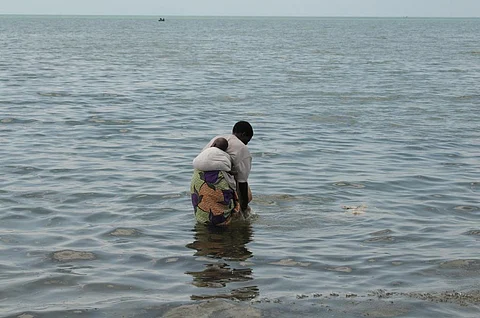

Climate shocks, mainly the rapid and significant rise of Lake Tanganyika, caused at least 84 per cent internal migration in East Africa’s Burundi in the recent years, according to Save the Children, a global independent organisation for children.
Floods, storms and landslides led to a new displacement crisis in the region where at least 103,305 people were dislodged due to effects of climate change, the agency noted in a statement released September 19, 2021.
Burundi is among the 20 countries most vulnerable to climate change. It has the most people living along the shores of Lake Tanganyika among the four countries bordering it.
The lake — Africa's second-largest — rose to 776.4 metres above sea level in April compared to the normal average of 772.7 metres, due to heavy storms and subsequent flooding and landslides.
Several homes and farms were inundated as a consequence, said Bernard Sindayihebura, an environmental management professor at the University of Burundi.
Hundreds of displaced families the agency surveyed this month said they have no hope of returning home because their land had been lost to the swollen lake.
Communities in the other three countries — Tanzania, Zambia and the Democratic Republic of Congo — have also been affected.
During the past two years, persistent heavy rain, followed by floods, landslides and strong winds, raised Lake Tanganyika to dangerous levels.
“People described waking up at night to find their homes and farms swallowed by the lake. Entire fields of crops have been wiped out,” Save the Children said.
Over 90 per cent of the country’s population live in rural areas and depend on agriculture and livestock.
The small landholdings and double- or triple-cropped plots are mostly rainfed and cultivated by hand. They produce little or no marketed surplus.
The country faces the burden of impacts of global emissions and is very poorly adapted to climate change (ranked 171 out of 181 countries in the 2015 Notre Dame Global Adaptation Index).
Burundi has one of the highest fertility rates in the world and its children have been uniquely affected by the crisis, the agency noted. Displacement camps are currently overrun with children, according to its press note. “At Gatumba camp, which is home to 3,000 flood-displaced people, over 80 per cent of residents are children.”
Children have to wade through floodwaters to reach school and are exposed to illnesses such as cholera and malaria.
Maggie Korde, Save the Children's country director for Rwanda and Burundi, said:
The world seems to have forgotten Burundi, and yet it's bearing the brunt of global climate change, with children the most affected.
Lack of funds has direct consequences on the planned assistance. It has also negatively impacted living conditions of the most vulnerable populations, according to the United Nations Office for the Coordination of Humanitarian Affairs
Save the Children called on the international community to urgently fund Burundi's humanitarian crisis, with focus on ensuring child-centred investments and helping poorer countries manage unavoidable impacts.